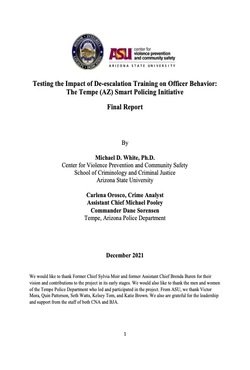By Brett Cowell, Maria Valdovinos Olson, Eiryn Renouard Jennifer Calnon Cherkauskas, Ryan Fisher
Law enforcement culture, particularly the normalization and acceptance of voluntary risk-taking, can result in officers taking unnecessary risks when driving and working on or near a roadway. These dangerous behaviors— including not wearing a seat belt, reflective vest, or body armor, driving at excessive speeds, and driving while fatigued or distracted—are major risk factors for officer-involved motor vehicle collisions and struck-by incidents. Given the significant number of officers who are injured or killed in these types of roadway-related incidents each year, the National Law Enforcement Roadway Safety Program (NLERSP) team sought to examine how law enforcement culture may be contributing to these behaviors and provide law enforcement leaders with guidance on how to shift organizational culture to improve roadway safety. Through a review of the available literature on law enforcement culture and roadway-related incidents and the findings from a focus group comprised of law enforcement executives, supervisors, trainers, and officers, the NLERSP team identified several actionable steps agencies can take to address roadway-related safety risks. In addressing these risks, law enforcement leaders must strive to create a culture of safety within their agency—one that emphasizes and values “safety first” in law enforcement operations. While changing culture in law enforcement is not easy, the highly successful crash prevention program implemented by the Las Vegas Metropolitan Police Department, whose case study is featured in this brief, demonstrates that it is possible. As focus group participants explained, establishing a culture of safety for roadway operations can be accomplished by setting expectations through policy and training, communicating these expectations, providing unyielding support, and emphasizing accountability at all levels of the agency
Arlington, VA: The National Policing Institute, 2024. 34p.




